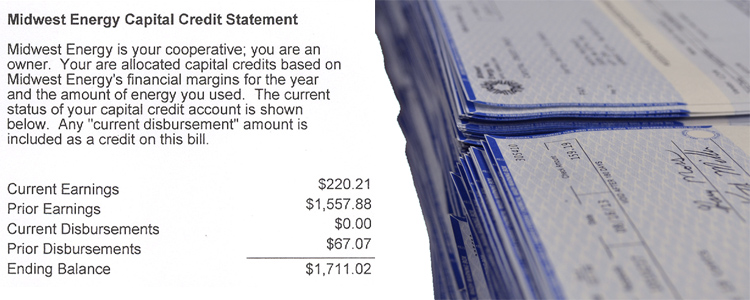Midwest Energy Changes Capital Credit Payment Methods
Midwest Energy recently changed the way it pays capital credits to its customers. Instead of a paper check, many customers who have an active Midwest Energy account will see their capital credits appear as a credit on their August or September bill.
“Several customers had expressed a preference for a bill credit instead of a paper check, not having to take a check to the bank,” said Tom Meis, Vice President of Finance at Midwest Energy. “This also helps the cooperative, saving time and money to process and mail thousands of checks to current customers.”
Capital credits are the margins remaining after all expenses have been paid. As a member-owned cooperative, Midwest Energy returns these to the cooperative’s members in proportion to their electric or natural gas usage on a roughly 20-year cycle, meaning credits paid out in 2013 were earned in the early ‘90s. Former customers who no longer have current Midwest Energy accounts, but who earned capital credits decades ago, will continue to receive paper checks.
Midwest Energy is paying $2.6 million in capital credit checks and bill credits to 31,206 members in 2013. Individual payments ranged from $10 to $45,361, with an average payment of $117.
Another thing that has changed is how customers are notified of capital credits earned each year.
In the past, customers would receive a separate capital credits statement each July. Beginning in 2013, messages printed on August or September bills will include the amount of capital credits earned the previous year, any capital credit balance from previous years, and the amount credited to their current bill.
“All of these changes are designed to make capital credit retirements more efficient, easier to understand and more convenient for the member,” said John Blackwell, Chair of Midwest Energy’s Board of Directors.
